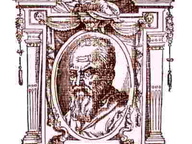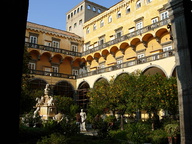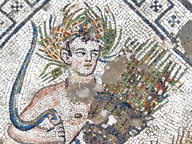Leopoldo Ceccarelli. Strategy of subtraction
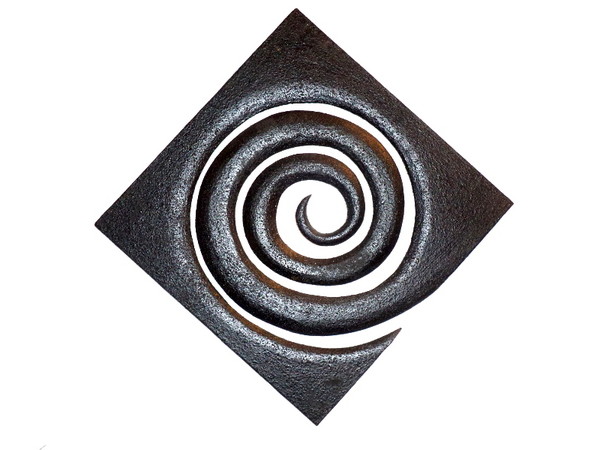
Leopoldo Ceccarelli. Strategia della sottrazione, Galleria Oblom, Torino
From 05 Novembre 2014 to 29 Novembre 2014
Turin
Place: Gallery Oblom
Address: via Baretti 28
Times: Tuesday to Friday 4-8pm; Saturday by appointment
Responsibles: Fabrizio Bonci
Ticket price: free entrance
Telefono per informazioni: +39 333 8438768
E-Mail info: info@galleriaoblom.it
Official site: http://www.galleriaoblom.it
In the Gold footprint, a small roll of bitumen and cement placement of sheets of brass, we see a representation of a dialectic process where the old rules have been recognized with deep cuts in our neuronal tabulae thousands of years of tradition: that between ?λη and ε?δος. The comparison between the demands of an active material and a formal principle, which in this work could be so much the character of the slow magma genesis of a celestial body as that muddy the birth of a primordial organism, we find it is in the quiet dialogue between the fluid element and the solid Greto is in contrast to seismic and orogenic between two-dimensionality and three-dimensionality of fracture.
In other works by the artist Turin Leopold Ceccarelli see different things. Pause in black + orange reflection on the concepts of continuity and discontinuity become perhaps the attempt to establish the axioms of un'aritmogeometria staff, incomplete and interesting, that alludes to a subterranean dimension of the musical world.
In spiral black and red Gorgo plexus overload of meanings of the symbol of the spiral is dissolved in favor of its reduction to the simple and naked presence of the geometry. In the series of equilibria precarious and Entropy, on the contrary, the search for a possible order of becoming instability is divided into different lines of experimentation whose origin is located in the idea of ??harmony that complexity, rather than in the simplicity, the its reason for being.
An insight of Wittgenstein's reflections on aesthetics is that when we look at a work of art put in motion the same emotional and intellectual structures that come into play when we look at a face. Try to describe a work of art, you would say, is like trying to describe a human being. And because behind a work of art is a human being, artist, trying to describe a work of art is, in a way, trying to describe the artist.
Time doesn't pass. The time has already passed. Beyond the possible references that can be traced in the work of Ceccarelli, more or less corresponding to the intentions of the artist, there is a way of looking at things. Over the years this gaze is changed. How has the eyes of the writer. But it also remained the same mind to Ceccarelli, as it was, perhaps, the same look to the writer. Dissatisfaction, impatience. Acceptance. The solution of the posting. Breaking free from fiction. Somehow the art Ceccarelli is lighting. Implement a subtraction operation. Subtract the weight of the world's existence. A world of musical intervals. A world of beauty, form and silence. A world of less, up to the limit of zero. Escape from the world empty.
The clock is ticking. The time has not yet passed. Things are still there. The world is old and does not die. There are words and thoughts as they get older. There is beauty, always equal to itself, and there is the infinite weight of our humanity. Then, the stars, how organisms and people will die and the earth will absorb the magma.
Fabrizio Bonci
In other works by the artist Turin Leopold Ceccarelli see different things. Pause in black + orange reflection on the concepts of continuity and discontinuity become perhaps the attempt to establish the axioms of un'aritmogeometria staff, incomplete and interesting, that alludes to a subterranean dimension of the musical world.
In spiral black and red Gorgo plexus overload of meanings of the symbol of the spiral is dissolved in favor of its reduction to the simple and naked presence of the geometry. In the series of equilibria precarious and Entropy, on the contrary, the search for a possible order of becoming instability is divided into different lines of experimentation whose origin is located in the idea of ??harmony that complexity, rather than in the simplicity, the its reason for being.
An insight of Wittgenstein's reflections on aesthetics is that when we look at a work of art put in motion the same emotional and intellectual structures that come into play when we look at a face. Try to describe a work of art, you would say, is like trying to describe a human being. And because behind a work of art is a human being, artist, trying to describe a work of art is, in a way, trying to describe the artist.
Time doesn't pass. The time has already passed. Beyond the possible references that can be traced in the work of Ceccarelli, more or less corresponding to the intentions of the artist, there is a way of looking at things. Over the years this gaze is changed. How has the eyes of the writer. But it also remained the same mind to Ceccarelli, as it was, perhaps, the same look to the writer. Dissatisfaction, impatience. Acceptance. The solution of the posting. Breaking free from fiction. Somehow the art Ceccarelli is lighting. Implement a subtraction operation. Subtract the weight of the world's existence. A world of musical intervals. A world of beauty, form and silence. A world of less, up to the limit of zero. Escape from the world empty.
The clock is ticking. The time has not yet passed. Things are still there. The world is old and does not die. There are words and thoughts as they get older. There is beauty, always equal to itself, and there is the infinite weight of our humanity. Then, the stars, how organisms and people will die and the earth will absorb the magma.
Fabrizio Bonci
SCARICA IL COMUNICATO IN PDF
COMMENTI

-
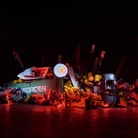 Dal 27 marzo 2025 al 27 luglio 2025
Milano | Pirelli HangarBicocca
Dal 27 marzo 2025 al 27 luglio 2025
Milano | Pirelli HangarBicocca
-
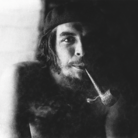 Dal 27 marzo 2025 al 30 giugno 2025
Bologna | Museo Civico Archeologico
Dal 27 marzo 2025 al 30 giugno 2025
Bologna | Museo Civico Archeologico
-
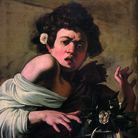 Dal 27 marzo 2025 al 20 luglio 2025
Firenze | Villa Bardini
Dal 27 marzo 2025 al 20 luglio 2025
Firenze | Villa Bardini
-
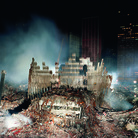 Dal 25 marzo 2025 al 24 agosto 2025
Brescia | Museo di Santa Giulia
Dal 25 marzo 2025 al 24 agosto 2025
Brescia | Museo di Santa Giulia
-
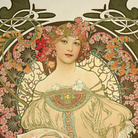 Dal 22 marzo 2025 al 20 luglio 2025
Ferrara | Palazzo dei Diamanti
Dal 22 marzo 2025 al 20 luglio 2025
Ferrara | Palazzo dei Diamanti
-
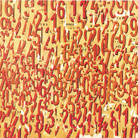 Dal 22 marzo 2025 al 08 giugno 2025
Venezia | Ca’ Pesaro – Galleria Internazionale d’Arte Moderna
Dal 22 marzo 2025 al 08 giugno 2025
Venezia | Ca’ Pesaro – Galleria Internazionale d’Arte Moderna
